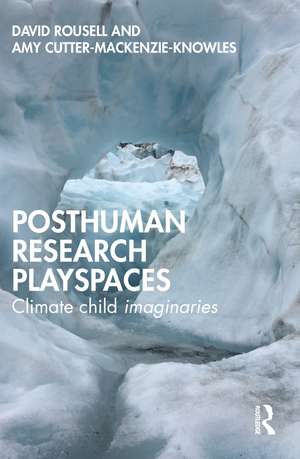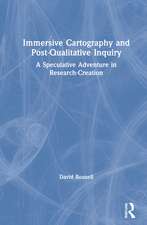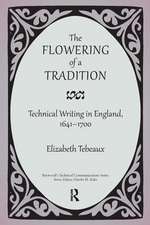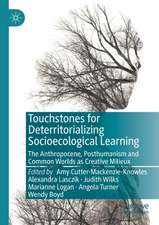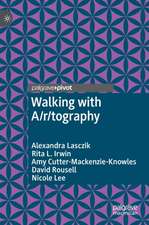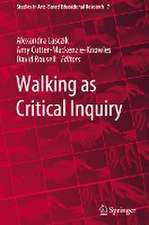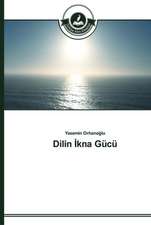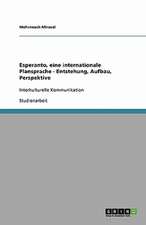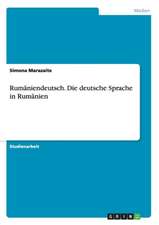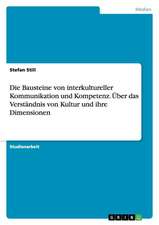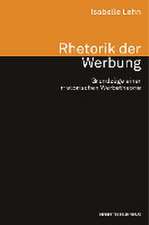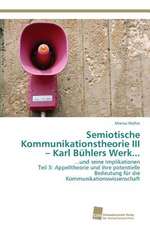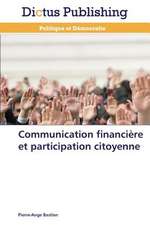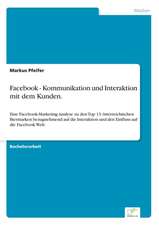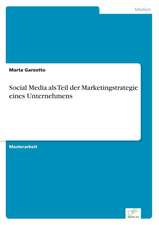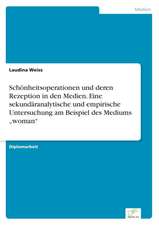Posthuman research playspaces: Climate child imaginaries
Autor David Rousell, Amy Cutter-Mackenzie-Knowlesen Limba Engleză Paperback – 30 dec 2022
The book presents a series of generative openings and propositions for future research in the field of climate change education, while also offering wide-ranging applications for graduate students and researchers in childhood and youth studies, the environmental arts and humanities, cultural studies of science and technology, educational philosophy, and environmental education.
Preț: 299.80 lei
Nou
Puncte Express: 450
Preț estimativ în valută:
57.37€ • 60.02$ • 47.65£
57.37€ • 60.02$ • 47.65£
Carte disponibilă
Livrare economică 12-26 martie
Livrare express 26 februarie-04 martie pentru 45.20 lei
Preluare comenzi: 021 569.72.76
Specificații
ISBN-13: 9781032372389
ISBN-10: 1032372389
Pagini: 186
Ilustrații: 38 Halftones, black and white; 38 Illustrations, black and white
Dimensiuni: 156 x 234 x 14 mm
Greutate: 0.78 kg
Ediția:1
Editura: Taylor & Francis
Colecția Routledge
Locul publicării:Oxford, United Kingdom
ISBN-10: 1032372389
Pagini: 186
Ilustrații: 38 Halftones, black and white; 38 Illustrations, black and white
Dimensiuni: 156 x 234 x 14 mm
Greutate: 0.78 kg
Ediția:1
Editura: Taylor & Francis
Colecția Routledge
Locul publicării:Oxford, United Kingdom
Public țintă
Academic, Postgraduate, and Professional ReferenceCuprins
1. Encountering the Anthropocene 2. Critical Climate Change Education in a Posthuman Milieu 3. Research Playspaces: Climate Child Researchers 4. An Ecological Aesthetics of Childhood 5. Surfaces of Experience 6. Children of an Earth to Come 7. Generative Openings
Notă biografică
David Rousell is Senior Lecturer in Creative Education at RMIT University, Australia, where he co-leads the Creative Agency Research Lab for ecological studies of creativity. His book Immersive Cartography and Post-Qualitative Inquiry was published with Routledge in 2021.
Amy Cutter-Mackenzie-Knowles is Professor of Sustainability, Environment and Education at Southern Cross University, Australia. She is the Executive Dean of the Faculty of Education, as well as the Research Leader of the "Sustainability, Environment and the Arts in Education" (SEAE) Research Cluster.
Amy Cutter-Mackenzie-Knowles is Professor of Sustainability, Environment and Education at Southern Cross University, Australia. She is the Executive Dean of the Faculty of Education, as well as the Research Leader of the "Sustainability, Environment and the Arts in Education" (SEAE) Research Cluster.
Recenzii
"Posthuman research playspaces is a creative, future facing, and politically engaged work that takes the reader on a journey into a different relationship with our environment. If we want to stop climate change, then how would we need to think? What would we need to do? Taking cues from children, the environment and philosophy, Rousell and Cutter-Mackenzie-Knowles offer responses to these questions that carry their reader into play spaces where the materiality of nature is a teacher. This book will be essential reading for those in environmental education, sustainability studies, childhood studies, arts education, and the posthumanities." -- Professor Anna Hickey-Moody, School of Media and Communication, RMIT University, Australia
"Posthuman research playspaces is a unique book that is engaging, challenging and ultimately hopeful in addressing climate change and its implications for children’s lives. The book leaves no stone unturned, calling our attention to issues of colonisation that are intimately entangled with the destruction of planet Earth. Putting posthumanist theories into conversation with children’s art, media, and writing, the authors offer detailed analyses of creative methods which extend children’s capacities to inquire and express insights into climate change. I love this book and imagine all readers concerned with childhood and climate change will love it too." -- Professor Margaret Somerville, School of Education, Western Sydney University, Australia
"For researchers and educators wishing to engage with these and other pressing environmental questions, Posthuman Research Playspaces offers tools, ideas, propositions, and openings. It is particularly useful as an example of how to combine conceptual and artistic work across the dimensions of philosophy, empirical research, educational practice and societal outreach. It presents a well-justified open-ended alternative to the more clear-cut solution-driven approaches within environmental education and pedagogies." -- Riikka Hohti, University of Helsinki, Helsinki, Finland and Tampere University, Tampere, Finland
"Posthuman research playspaces is a unique book that is engaging, challenging and ultimately hopeful in addressing climate change and its implications for children’s lives. The book leaves no stone unturned, calling our attention to issues of colonisation that are intimately entangled with the destruction of planet Earth. Putting posthumanist theories into conversation with children’s art, media, and writing, the authors offer detailed analyses of creative methods which extend children’s capacities to inquire and express insights into climate change. I love this book and imagine all readers concerned with childhood and climate change will love it too." -- Professor Margaret Somerville, School of Education, Western Sydney University, Australia
"For researchers and educators wishing to engage with these and other pressing environmental questions, Posthuman Research Playspaces offers tools, ideas, propositions, and openings. It is particularly useful as an example of how to combine conceptual and artistic work across the dimensions of philosophy, empirical research, educational practice and societal outreach. It presents a well-justified open-ended alternative to the more clear-cut solution-driven approaches within environmental education and pedagogies." -- Riikka Hohti, University of Helsinki, Helsinki, Finland and Tampere University, Tampere, Finland
Descriere
Posthuman research playspaces: Climate child imaginaries addresses the need for new forms of climate change education that are responsive to the rapidly changing material conditions of children’s socioecological worlds.
